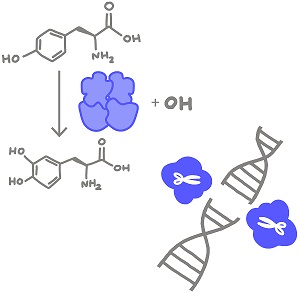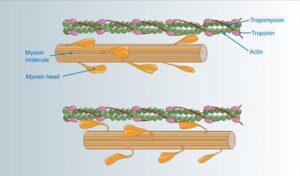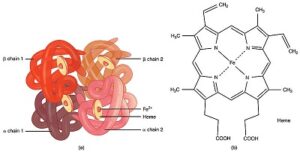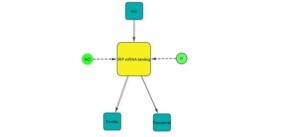The function of peptide bond are discussed below in the article-
Peptide bonds participate in a number of biological activities for a living organism. Amino acids form the proteins ( peptides) linking through peptide bonds. It also helps to build our body tissues and muscles and also repairs the damaged tissues in a living body. It plays an important role to maintain the coordination in body functions. Proteins also help to maintain proper biological pH and balance between body fluid.
The Biological roles of peptide bond as well as protein with detailed facts are discussed below in this article.
1. Alkaloids:
In alkaloids, the constituent of protein participates and help plants to defend theirselves from insects like organism. Major portion of alkaloids are isolated from fungi and also from higher plants. Alkaloids act as protective against insects and herbivores and may provide nitrogen to plants in case of nitrogen deficiency. They sometimes act as growth regulators in metabolic system. Example- Ergotamine.
2.Antibacterial Activities:
Many of the proteins (extracted from fungi) possesses antibacterial properties. The biological role of them are to eliminate pathogenic microorganisms, including bacteria, fungi etc. Example – Penicillin G.
3.Growth Factors
Some extracellular signal protein can act as a growth factors. For example- Vascular Endothelial Growth Factor (VEGF), Epidermal Growth Factor( EGF) etc.
4.Hormones
Higher animals synthesize certain peptides that act as hormones, signaling molecule , that play the role of chemical messengers in animal body. For example, Insulin, released from pancreas helps to reduce the sugar level in blood.
To know more please check 5+ Double Bond Examples: Detailed Insights And Facts
5.Controlling in Oxidation- Reduction Potential:
Certain peptides participate in controlling oxidation- reduction potential reactions. For example, the reduced form of Glutathione has a skin- lightening efficacy in humans. This may also serve as a key intermediate in electron transfer reactions.
6.Production of Biological Macromolecules
Proteins interact with another protein or any other biological macromolecules to form protein complex, a group of polypeptide chain. .The protein complexes are a form of mainly quaternary structure. They play an important role in various biological systems like regulatory processes, cellular functions and signaling cascades also .They also carry out the accurate replication of DNA (Deoxyribo nucleic acid) , the transmission of signal within cells and many other essential process.
To know more please follow 15 Coordinate Covalent Bond Examples: Detailed Insight And Facts
7.Enzyme Production:
Protein produces enzymes that act as biological catalyst and accelerate the rate of chemical reactions and speed up metabolism in living body. Example- The enzyme, nuclease breaks apart the backbone of nucleic acid (RNA/DNA)

8.As Structural Elements
Because of the rigid stricture, proteins can act as structural elements in cytoskeleton ( a structure that helps cells to maintain their shape) or in connective tissue ( that protects and gives structure to other tissues and organs in body). The proteins having limited flexibility can act as hings, springs, and levers that helps to assembly with one another and with other biological molecules into complex units and to the transmission within cells. Example- Actin.

To know more please follow SN1 Examples
9.As Transport Elements:
Proteins can transport small molecules through the organisms. Example- Hemoglobin is a protein which accept oxygen from lungs and transport it to the myoglobin in muscle tissue.

To know more please follow Stereoselective vs Stereospecific: Detailed Insights and Facts
10.As Storage Elments:
Proteons help to store other substances in the organism. Example- Ferritin ( iron storage protein) stores iron( through formation of complex) in liver.


Hello,
I am Aditi Ray, a chemistry SME on this platform. I have completed graduation in Chemistry from the University of Calcutta and post graduation from Techno India University with a specialization in Inorganic Chemistry. I am very happy to be a part of the Lambdageeks family and I would like to explain the subject in a simplistic way.
Let’s connect through LinkedIn-https://www.linkedin.com/in/aditi-ray-a7a946202